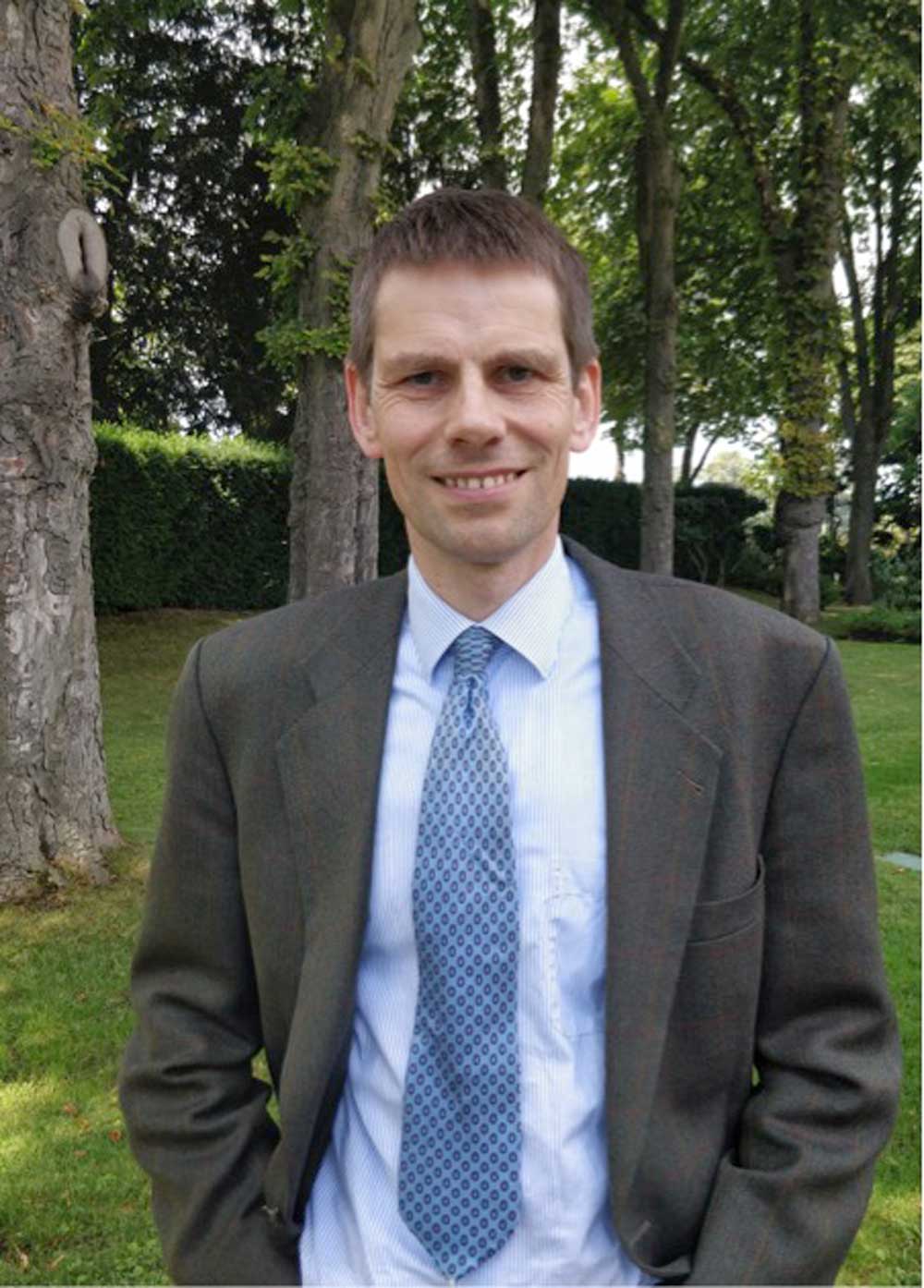Hubertus Gay: From German farm to the OECD in Paris
By Erminia Ciarleglio
Dr Hubertus Gay read agricultural economics in Germany at the Universities of Hohenheim and Kiel, but also studied in Newcastle-upon-Tyne (UK), Wageningen (NL) and Pietermaritzburg, South Africa (University of KwaZulu-Natal) where he gained his PhD. He’s a farmer’s son from north Germany. In fact, his brother is now in charge of the family farm. Dr Gay’s professional career started with the oilcrops and feed analyst and forecaster Oil World (Ista Mielke GmbH). Then came a spell with the Thünen Institute in Germany in its department for agricultural and environmental policies before moving to the European Commission in 2005, working first in its Joint Research Centre (JRC) in Seville and then in the Commission’s General Direction Agriculture and Rural Development (DG AGRI) in Brussels where among his subjects were agricultural market analysis and quality labels. Since 2014 Dr Gay is in the agriculture and trade department of the Organisation for Economic Cooperation and Development (OECD) in Paris, specialising in the coordination of the annual OECD-FOA Agricultural Outlook.
1. You now live in Paris, Dr Gay. How do you find the present mood of French farmers?
The farming sector in France has a stronger social presence than in Germany. And French farmers also expect the population to appreciate their role in society. Often, the actual prices for farm products are of secondary relevance. One result is that the state is very often quickly called upon when aid is needed. In the last years, yields have increased more slowly than in other EU regions and this has put pressure on the French farming industry. And the situation is not helped by the French government having less leeway for working out suitable domestic solutions.
2. You work with both the OECD and FAO. How do these organisations encourage a productive, innovative and sustainable agriculture?
The OECD tends to mainly analyse and compare policies and the effects of their application in member countries. Policy recommendations are based on the findings of such research. The agricultural subsidies applied in over 50 countries are annually analysed and compared using the PSE (Producer Support Equivalent) concept. Additionally, individual countries are analysed in detail for the effects of policies on innovation and productivity. So far ten countries have been so assessed, including the USA, Brazil, China, the Netherlands, and Sweden. I work on the OECD-FAO Agricultural Outlook which covers ten years whereby the aim is to identify developments in demand and supply of agricultural products with the results used to help assess effects of policy changes on agricultural markets. Clearly, this OECD work tends to be of indirect immediate importance. However, the results should enable countries to create the right conditions for development of a productive, innovative and sustainable agriculture.
Some results have a direct application, however: for instance, the OECD Tractor Codes. The FAO work is applied on an even broader basis, with special reference to developing countries.
3. Which farming products can we expect to experience good European markets in the next years? And which ones might be under pressure?
Through the opening of agricultural markets within the European Union, most product prices have become directly dependent on the world market. In the coming decade, global demand for agricultural products will increase markedly slower than it did over the last 20 years. There are two main reasons for this: biofuel and China. The former has experienced no marked growth in demand for some years. Nor are any new important markets currently in sight. China’s demand for food expanded substantially over the last 20 years. But now per capita consumption is slowly nearing European niveau. What’s more, population growth in China – and that of the rest of the world - is slowing down. This means demand will rise less markedly, putting prices under pressure in coming years, making farm sector productivity increases necessary to stay competitive. World market price pressure will probably be less for dairy products than for other farm ware because demand for milk in China and other developing countries proves to have the largest development potential.
4. What must take place short-term to prevent world hunger increasing again?
Political instability is the main reason for an increase in world hunger. In afflicted regions hunger increases while danger of famine reduces steadily in the rest of the world. Thus, political stability is decisive in the short term. Additionally, open markets rapidly have a positive influence on food availability. In the longer term, additional factors are important. In particular, increasing productivity within agriculture.
5. You are a member of the DLG. How does someone in your role profit from membership?
My profession means my involvement in agriculture is very abstract. My DLG membership counterbalances this situation and lets me see current developments in agriculture from the point of view of the farming sector. The DLG also gives me a measure of insight into how productivity can be developed and applied through management and technical innovations. As farmers, my family represents long-term DLG membership and this means I have always enjoyed a relationship with the DLG and its work.




